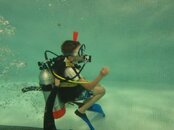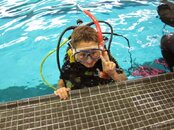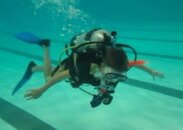I would like to ask for anybody's (particularly instructors and divers with good medical knowledge) opinions on children scuba diving.
Whatever you think the advantages or disadvantages of children diving I would like to know, as well as any restrictions you would place on children when they dive.
This information will help me to write the 2,000 word research project about the advantages and disadvantages of children I am currently working on.
Also any information about other agencies (than PADI) 'junior' qualifications would be very welcome as I am trying to form wider range of knowledge.
If you think your information/opinion will only be applicable to one type of diving/set of environmental conditions (e.g. Tropical Night Diving) please let me know.
Thanks a lot
Jack
Whatever you think the advantages or disadvantages of children diving I would like to know, as well as any restrictions you would place on children when they dive.
This information will help me to write the 2,000 word research project about the advantages and disadvantages of children I am currently working on.
Also any information about other agencies (than PADI) 'junior' qualifications would be very welcome as I am trying to form wider range of knowledge.
If you think your information/opinion will only be applicable to one type of diving/set of environmental conditions (e.g. Tropical Night Diving) please let me know.
Thanks a lot
Jack









